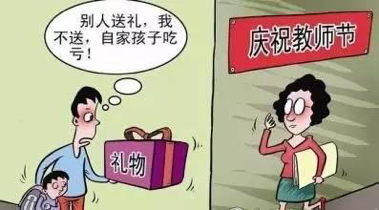
With highly specific, unspoken guidelines that govern gifting in China, navigating the landscape is a whole new ball game.
*This is part of a series of articles by Anthony (Tony) Lee, the author of China Trend: Stories You Cannot Find in Search Engines. The tome offers an objective insider’s look into the inner workings of the world’s most populous nation. Previously based in Shanghai for over 16 years, Tony is also the founder of several media, advertising and PR companies in China.
Join Luxury Society to have more articles like this delivered directly to your inbox
Every country has different customs when it comes to exchanging gifts. It is a form of communication that revolves around human relationships, which varies from one culture to another. What then, are the unique characteristics of gifting culture in China?
In Chinese, the word “present” or “gift” is usually translated as “Li Wu (礼物)”. The nuance behind this, however, is interesting. The term Li Wu conveys a sense of respect since “Li (礼)” means “courtesy out of reverence”. In short, Li Wu in its original sense is a very formal term. But that said, Chinese people today have two different concepts of Li Wu.
The first is with families and close friends. The gift culture in that circle is casual, with more friendliness and a lot less formality (the Chinese believe that the closer you are with a person, the less formality required). Whenever there’s a chance or occasion, you simply purchase something for them. These gifts can be fancy or practical in nature – and it doesn’t even need to be gift-wrapped. This is why most Chinese e-commerce sites or shopping malls tend not to offer gift-wrapping services for customers. For example, on a Children’s Day (June 1), parents usually take their children out and buy them gifts on the spot or browse gift items online with their children. Therefore, there’s a lack of the “Surprise!” element in their gift culture.
The other concept of Li Wu in China mostly involves those with shared interests such as business partners, clients, government officials as well as schoolteachers. This is closer to the original meaning of Li Wu and luxury products would fall into this category. In this case, the monetary value of the gift becomes more important than anything else. The item gifted has to be either expensive and/or unique because it is indicative of the level of respect shown (whereas in Japan, it is the “thought” that goes into selecting the gift that counts more than the price). This is why high-end products sold in China are often purchased not for the customer himself, but for someone else.
Do you need to know more about localising your brand strategy for the Chinese market?
A few years ago, I invited those I regarded as “friends” in the company to my wife’s birthday party. I reminded them more than once that gifts were not necessary, as it was a personal occasion. But as it turned out, every single one of them brought a present anyway – each costing at least a thousand dollars! That’s when I learned that in China, as long as a person is on your payroll, they will always regard you as their boss, regardless of how close you think you are with them on a personal level. To cut a long story short, my wife was a happy woman that day.
Teacher’s Day (September 10) is a major cause of headache for parents as well. Although gifts to teachers are denounced and deemed unethical, parents must consider the possibility of other parents giving gifts to their child’s teachers.

The cartoon above illustrates a dad bringing a gift for his son’s teacher thinking, “If I don’t send a gift when others do, my kid will be at a disadvantage.” So in any case, my wife bought an expensive bag for my daughter’s 2nd grade teacher.
One common element in both concepts of Li Wu is that they are not bound by timing. Other than Valentine’s Day, Christmas or birthdays, there are no traditional holidays that specifically require gift giving in China. I can think of two reasons for this: One is that Hong Baos (red envelopes filled with cash) often replace gifts. These are often given out during the Spring Festival and other big occasions such as weddings and graduations. The other reason would be that it boils down to the personal judgment of each individual when it comes to whom and when to gift.
To extensively understand the gift culture in China, one must grasp the unique characteristics of “Guanxi (关系)” (network of relationships) which I hope I’ll have a chance to cover in the near future.

